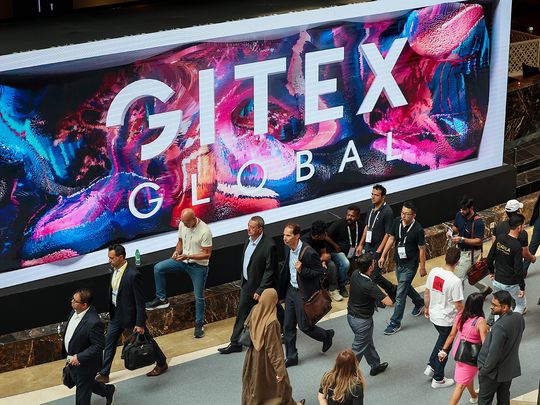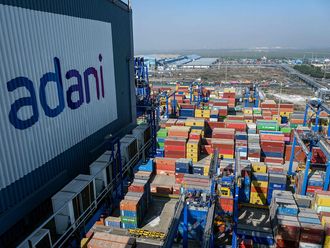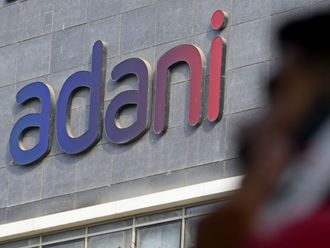
Dubai: Has your organization already implemented a cloud computing project? Have you started on any AI implementation?
If the answer is ‘No’ to both, chances are that soon enough, businesses in the UAE and Gulf will soon have to put up some speed to catch up with those who already have. That’s exactly what should be keeping the Gulf’s technology sector humming along nicely as more spending comes through the tech project pipeline.
This is the backdrop in which this year’s Gitex Global opens in Dubai on Monday (October 14). For most organizations represented there, the one question that will keep popping up is: ‘How much are you spending on AI?” Or, ‘planning to spend’.
No slowing on IT spending
The heavy tech-related spending that GCC economies and their companies took on from 2021 is showing no signs of a slowdown.
Even during late 2022/early 2023, when there worries about global economy going into a recession, GCC organizations by and large still kept the pace of spending on their tech upgrades. 2024 has proved to be another good year for tech projects, and which should extend to the better part of 2025 to 2028.
Because, there is a lot to get done on AI.
Now comes AI
Now, the big investments on Artificial Intelligence linked needs is only beginning, with most of it from government or government-related entities and the biggest enterprises in the country.
“Our goal is to make AI accessible and beneficial for a wide range of clients, regardless of their size,” said Talal Al Kaissi, Executive Vice-President and Chief Government Affairs & Partnerships Officer at Abu Dhabi headquartered Core42.
“The main customer persona we target are the public sector and regulated industries. However increasingly we are finding that most enterprises and organizations are looking for the same thing: access to compute, and a safe mechanism to derive value out of their most prized asset.”
How fast will AI take up rates be?
Mid-sized enterprises are ‘by and large still making up their minds as to how and where AI applications can help them’, said the CEO at a Dubai-based systems integrator. “You can’t fault them because the investments are going to be substantial. The time they will need to spend on project implementation and the HR requirements should also be on the higher.
“Which is why many might be waiting to see what IT vendors can come up with on AI solutions.”
First - do the cloud
Meantime, organizations in the GCC still have much to do to get themselves cloud-enabled, which is about migration of their data – and even their services – onto the internet. According to data from IDC, the tech research consultancy, Gulf-based organizations spent 41% of their 2023 tech infrastructure and software needs on upping their cloud systems.
“This is expected to grow to 51% in 2025 indicating the fast-evolving maturity of cloud implementations in the region,” said Jebin George, Senior Research Manager - Cloud at IDC.
“SMEs (under 500 employees) - starting from a base of 35% of total cloud spending in the GCC - are expected to see faster growth in cloud spending than large enterprises from 2023 to 2028.
“The only key difference is that large enterprises are involved in complex, high-value cloud migration projects, including investments in cloud infrastructure as a service, while SMEs focus more on SaaS (software as a service) and PaaS (platform as a service) implementations.”
More tech investments to be done
All of which adds up to quite a lot more of tech investments that businesses in the UAE will have to go through. Sure, there is much hype around AI, but once that subsides, the real user needs will start to pop up for businesses, whatever be the size of their operations. Or whether they are in the consumer facing business or not.
Because AI applications can lend a hand when you drive up to fill petrol at an ADNOC Distribution station. Or AI can show up in ways that help organizations smooth out internal processes or help with better cost management down the line.

The rapid advancement of AI technology has indeed placed a significant responsibility on tech companies to integrate AI capabilities into their products swiftly
“For companies like Samsung, the imperative to embed AI into our devices is not just about keeping pace with technological trends,” said Fadi Abu Shamat, Senior Director, Head of the Mobile eXperience Division at Samsung Gulf Electronics, in a recent interview. “It’s about redefining user experiences and putting AI-powered applications into the heart of our devices.
“Developing groundbreaking AI solutions is an ongoing journey that requires sustained effort and innovation.
“This involves not only implementing current AI technologies but also investing heavily in R&D to push the boundaries of what's possible. For us, this means striking a delicate balance between offering immediate AI-enabled applications and working on more advanced solutions to define the next generation of smart devices.”

A cloud-first approach is the go-to strategy today for organizations of all sizes, including regulated sectors such finance, government and healthcare
That’s exactly what other vendors will be hoping to do – and get clients, whether enterprises or consumers, to take note.
What organizations can’t afford to do is take their own sweet time to decide when they need to take up AI related spending.
“There were many businesses in the UAE and Gulf who waffled on turning their operations digital,” said the CEO at the systems integrator. “Then, Covid happened and these businesses had to rush to get digitally enabled. Many would have spent more than what they would have if they had been systematic about their IT spending.
“It took Covid to make them learn that lesson.”
Tech vendors will be hoping that this is not something that will happen on AI and AI projects.












